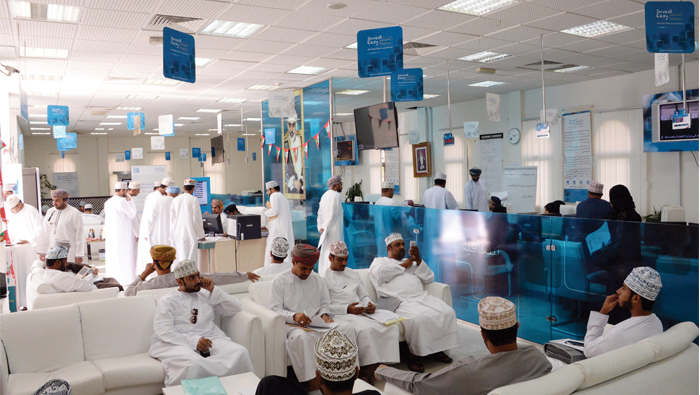
Muscat: Oman’s Ministry of Commerce and Industry is currently looking to make changes to its Foreign Direct Investment Law, to encourage more companies to invest in the country.
Under these changes, foreign companies can receive 100 per cent ownership of their entities, as well as a reduction in the minimum capital required to invest.
The move is also aimed at protecting the rights of the investors, while providing more jobs to Omanis and provide capital to companies where needed. The law is expected to be passed this year.
The move was proposed by the Implementation, Support and Follow-up Unit (ISFU), the government body that oversees the execution of Oman’s Tanfeedh plans for economic diversification, and was included in their recently-released annual report for 2018.
In their report, the ISFU said: “The Foreign Direct Investment Law (FDI) has been put in place to regulate and encourage investments, with the rights of the investor being protected. Through improvements to the infrastructure, providing capital to finance domestic and increasing job opportunities for Omanis, the FDI will benefit Oman’s economy in many ways. This initiative will revise the law to open the market to foreign investors through granting 100 per cent ownership and a reduction in minimum capital requirements.”
Several stakeholders are involved in ensuring approval for these changes goes through. These include the Ministry of Legal Affairs and the Ministry of Commerce and Industry. In addition, support will also be provided by the Royal Oman Police with oversight from the Cabinet of Ministers and the Council of Oman.
The nation’s Invest Easy portal will also provide its input on this. Invest Easy allows companies to register their organisations online, and also allows them to track any applications they may have made to the Ministry of Commerce and Industry.
“ISFU played a key role in progressing the initiative by acting as a buffer between governmental agencies and working with them to agree on a way forward,” said the report.
“There was a shortfall of human resources which caused initial delays in preparing the draft, however it was overcome. The law is expected to be enacted in 2019 as it is in the final stages of the legislative process.”
In addition, Ahmed Al Hooti, a board member and head of economic study at the Oman Chamber of Commerce and Industry, said the ministry was currently working with the required lawmakers to ensure the law received approval this year.
Al Hooti added: “We are trying to bring most of the foreign investors who put their money and their technological know-how. Usually, you have investors who come here and ask the banks in Oman to give them loans. This leaves us with nothing, because they need the land, they need the loans, they need to bring technical experts and employees from outside, so there is no in-country value here. We gain nothing from these kinds of investors.”
When this new law is passed, they will put criteria for those kinds of investors who need help or need to give them so more incentives, rather than giving just anyone,” he explained. “These laws will differentiate between the real investors who can go through the categories which we put. The Chamber of Commerce and Industry has ranks for the companies – we have four-star, three-star and two-star companies, we have standards of excellence, and we have a standard for global companies. The Ministry of Commerce and Industry also has these standards.
He added: “Now for example, if we have a company that meets the standards of excellence, we can raise the cap for that company, particularly for joint ventures and foreign investors, and give them different caps. An investor can start with OMR100,000, 200,000 and so on, so based on the investment, we can classify the company.”
He also said that the Ministry of Commerce and Industry had set up a new department to deal with companies that prefer to invest smaller amounts, as compared to large sums.
“Usually, Ithraa is taking care of those investors who put more than OMR1 million in the country, so they will guide them, they will help them, and they will take care of them,” Al Hooti explained. “But the Ministry of Commerce and Industry just a few months ago established a new department which takes care of the strategic investors.
He added: “This will take care of those kinds of investors, and they will solve their problems, they will help their needs. There is hard work going on to finish passing the law in 2019, because this is the last year of the 8th term of the Shura Council, so we think they will pass it this year.”
Ramanuj Venkatesh, a financial analyst in the country, said that some companies preferred to invest over time, as it enabled them to grow in a slower but steadier manner.
He said: “Some organisations do not prefer to invest a lump sum amount, but rather invest in parcels or increments, so that they can see how the market is reacting. This way they will have resources to spend on advertising, on hiring people, and they will be able to know how much to spend on these necessities. Some people might ask, why not invest all at once, but it is very important to know how the wind is blowing, because then you will know how much to invest to meet the market demands.
“If for example you invest all at once, you will grow to a certain level, but then won’t be able to adapt when the market changes,” added Venkatesh. “When the market changes, you need the right people who know the country well to be able to guide you through it, and you will need to hire them. There are many talented Omani graduates and jobseekers who will be needed to fill these roles, and if you invest steadily, then you will able to hire them at the right time and with maximum efficiency.”